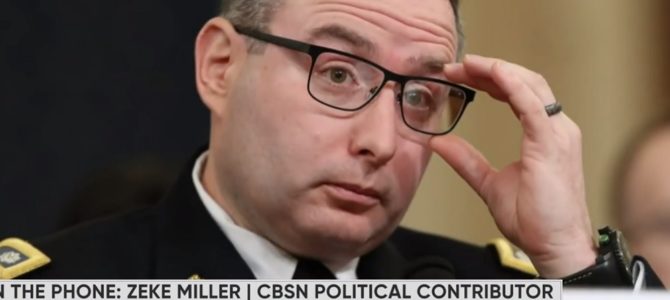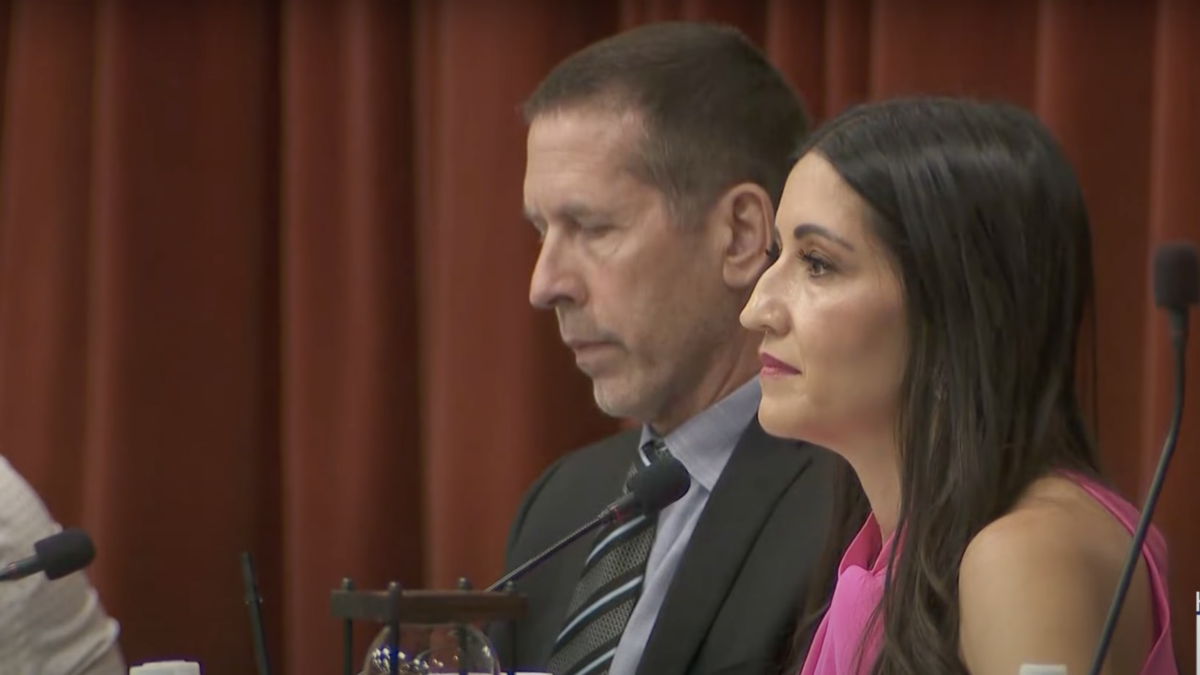
Alexander Vindman, the retired U.S. Army lieutenant colonel who helped plot the botched impeachment of former President Donald Trump in what amounted to a failed coup attempt, thinks Tucker Carlson should be “censured” for saying things Vindman doesn’t like about the Jan. 6 riot at the U.S. Capitol.
In a tweet Thursday responding to a trailer Carlson posted for his new documentary, “Patriot Purge,” Vindman asked, idiotically, “How is this different than yelling fire in a crowded theater? Carlson is attempting to incite a riotous mob. He should be censured. I’d like to hear the arguments for/against this being protected speech.”
Well since you asked, the argument for Carlson’s documentary being protected speech is right there in the Bill of Rights, on the first page, where it says Congress shall make no law abridging the freedom of speech or of the press. That includes reporting and commentary that some people, even disgraced former Army officers who try to remove duly elected presidents, disagree with.
He is an anarchist; an arsonist of American democracy. How is this different than yelling fire in a crowded theater? Carlson is attempting to incite a riotous mob. He should be censured. I’d like to hear the arguments for/against this being protected speech. https://t.co/xHTaxXo2p2
— Alexander S. Vindman (@AVindman) October 28, 2021
It’s embarrassing for Vindman that this needs to be spelled out for him, but “protected speech” under the First Amendment includes pretty much everything except a handful of specific situations, none of which remotely have to do with Carlson’s documentary.
For example, you can’t call for imminent lawless action (or incitement). You also can’t issue what’s called a “true threat,” which the U.S. Supreme Court in 2003 defined as “those statements where the speaker means to communicate a serious expression of an intent to commit an act of unlawful violence to a particular individual or group of individuals.” Fighting words is another, quite limited category of unprotected speech that’s restricted to face-to-face interactions meant to provoke a violent reaction from the person being addressed. Not covered in any of these categories is, say, political reporting and commentary that Vindman doesn’t like.
Vindman, the man who broke the chain of command and illegally leaked the contents of a phone call between Trump and Ukraine President Volodymyr Zelensky to a “whistleblower” in order to jump-start the Ukraine impeachment circus, is also confused about what “yelling fire in a crowded theater” means. People like Vindman always invoke the fire-in-a-crowded-theater line every time they want to justify censorship, and every time they reveal their bone-crushing ignorance.
The line comes from Justice Oliver Wendell Holmes, who in a 1919 opinion in Schenck v. United States wrote, “The most stringent protection of free speech would not protect a man in falsely shouting fire in a theatre and causing a panic.” But Schenck was one of the most loathsome free speech decisions in the court’s history, and it was overturned 50 years ago.
In Schenck, the Supreme Court was tasked with deciding whether Charles Schenck, the secretary of the Socialist Party of America, could be convicted under the Espionage Act for distributing a pamphlet that opposed the draft during World War I. The pamphlet didn’t call for violence or even civil disobedience, but merely urged Americans to petition for a repeal of the draft and to “assert your rights.”
Holmes’ crowded theater line was simply his way of saying the First Amendment isn’t absolute. But it had no legal authority and wasn’t part of the actual ruling, which was that Schenck’s pamphlet posed a “clear and present danger” to the country. This absurd ruling was one of a trio of odious free speech decisions the Supreme Court issued in 1919 that landed peaceful anti-war protesters in prison.
But Schenck was overturned in the landmark 1969 case Brandenburg v. Ohio, which held that inflammatory speech, even speech that advocates violence — even, say, if the speaker is at a Ku Klux Klan rally where klansmen are burning crosses and carrying firearms — is protected by the First Amendment unless it is “directed to inciting or producing imminent lawless action and is likely to incite or produce such action.”
In other words, the First Amendment is expansive, and by trotting out the crowded theater line about a political documentary he doesn’t like, Vindman is putting himself on the side of the worst censorship decision ever handed down by the Supreme Court, a decision that has since been discredited, disgraced, and thrown into the dustbin of history.
But then Vindman should be well familiar with that.









